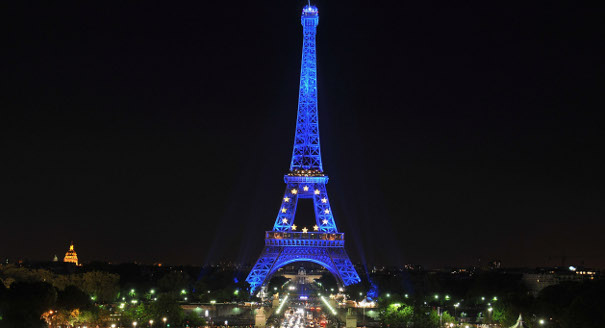Every week a selection of leading experts answer a new question from Judy Dempsey on the foreign and security policy challenges shaping Europe’s role in the world.
Marc PieriniVisiting scholar, Carnegie Europe
France may neither ruin nor save Europe, but there are signs that point in both directions.
On the economic front, France is likely to contribute to a more ambitious EU fiscal and monetary policy that may include fully integrated banking and budgetary supervision mechanisms. Such a policy may not “save” Europe, but would certainly contribute to completing the hastily introduced eurozone.
Deeper European integration, especially giving the European Commission a stronger role, is bound to resemble partial federalism, a word that is anathema to the French. Yet, France has a long tradition in financial and monetary affairs and might even volunteer a strong candidate for the next European commissioner for economic and monetary affairs if such an ambitious policy were agreed upon.
In foreign policy, the picture is radically different. The Lisbon Treaty has clearly resulted in less Europe rather than more—as the “Big Three” member states intended. The French view of defense and foreign policy at European level is rather clear, even if it is not expressed in the following blunt terms: France, a permanent member of the UN Security Council and a nuclear power, cannot allow its special status in world affairs to be “blurred” through a diluted European foreign policy.
Recent crises, some including military operations, like Libya, Mali, Syria, or the Central African Republic, or the highly disputed nuclear deal with Iran, are cases in point for Paris. In the French view, leadership should be kept in Paris, London, and Berlin, while the EU’s foreign affairs high representative should orchestrate only the common EU position, which should necessarily be less ambitious. France will therefore not “ruin” the Common Foreign and Security Policy, but will most likely not be a dedicated contributor to major advances in this field.
Gianni RiottaMember of the Council on Foreign Relations
Neither. France lacks economic weight, political power, and cultural critical mass, and is no longer able to steer the continent. Since the days of former president François Mitterrand, the country has been trying to redefine itself in the world, failing—alas—to restore its long-lost grandeur.
France remains a wonderful country, home to a crucial culture, a beautiful language, and a brilliant economy, but it has failed to be a global leader. It is simply impossible to maintain France’s welfare system in the globalized economy. Economic reforms are urgently needed; former president Nicolas Sarkozy promised them, then backpedaled the first time the glorious unions’ flags flooded the streets of Paris.
France wants to live in the past and enjoy its exception culturelle, while still being considered a world leader. That is impossible. President François Hollande has been good at playing the foreign affairs card—see Mali, Syria, and Iran—but he will be judged by reforms at home. So far, his scorecard is quite poor.
So the question should be reversed: Will Europe save France from itself? Peut-être . . . just peut-être.
Stephen SzaboExecutive director of the Transatlantic Academy
Neither. France, like Germany, is not a hegemon or a serious spoiler, but only part of the larger solution to the European question.
France has no realistic alternative to making the EU work. It is likely to be important in shaping an intergovernmental EU together with a Germany that seems to have pulled back from a federalist vision and is now closer to the French view. Paris will play an important role in Germany’s emerging strategic vision for Europe, and will make Berlin take European defense more seriously than it has, especially in the area of European defense consolidation.
The French economy is not in as bad shape as it critics contend. While the country has a weak president in François Hollande, he has a majority in parliament and a strong state. Marine Le Pen, leader of the National Front, is a concern, but she and her party are unlikely to gain power.
Paris remains Berlin’s most important European partner. While the Franco-German relationship is no longer sufficient to drive European integration forward, it remains necessary for any serious European construction, and Paris will remain an important positive force in that effort.
Sinan ÜlgenVisiting scholar, Carnegie Europe
From a Turkish perspective, France’s potential role in shaping the future of the EU is of the essence. Whether Paris will use that potential to save EU foreign policy remains to be seen.
For a long time, under former president Nicolas Sarkozy, France was the country that blocked Turkey’s progress toward EU accession. The main reason for this obstructionist attitude was allegedly contrasting visions of the future of Europe. The French leadership believed that Turkey’s accession would condemn the EU to being a looser and less cohesive economic union, instead of becoming a political union with federalist colors.
The euro crisis shifted the terms of the debate. The envisaged institutional developments that are set to pave the way for a multitier Europe negates the argument that Turkish membership would be incompatible with the objective of a stronger Europe. In fact, given the growing instability on Europe’s southern borders, Europe may be stronger if it is better equipped to deal with the challenges facing that turbulent region.
That is the essence of Ankara’s strategic argument; it remains to be seen whether the Socialist leadership in France will be convinced. What is clear is that France’s position on Turkey will not only matter for Turkey’s EU membership prospects, but will also determine the level of ambition of the post–euro crisis EU as a foreign policy player.






.jpg)